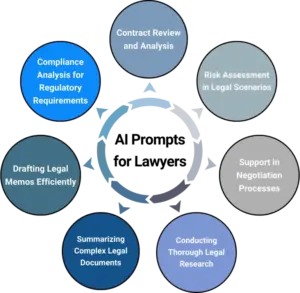Artificial intelligence (AI) is changing industries and how we use technology. However, people are concerned about the ethical use of AI. Using AI responsibly and being transparent about how we use it is crucial. Transparency in AI is crucial.
Understanding the Importance of Ethical AI
As AI gets better, it’s vital to think about ethics. AI ethics means using AI fairly and ensuring it respects people’s rights and society’s good. Regulators, tech firms, and others need to answer these ethical questions. Doing so builds trust and makes sure everyone is accountable.
Defining AI Ethics
AI ethics means following rules and principles for making and using AI. It’s about thinking about things like fairness, privacy, and biases when we use AI. We also need to deal with laws, and rules, and talk to the right people, like product managers and human rights groups.
Developing AI systems must follow ethical rules. This means making sure algorithms are fair, unbiased, and responsible. Creating an AI code of ethics helps organizations set guidelines. This stops unfair outcomes and supports ethical AI use.
The Role of Fairness in AI
Fairness is crucial in AI ethics. We must ensure that AI systems prevent unfair outcomes whether it’s in healthcare, social media, or other areas. This helps prevent inequalities and ethical issues.
To make things fair, it’s crucial to involve different people, like those from various backgrounds and communities, as well as human rights groups, in making decisions about AI. This reduces biases, maintains clarity, and ensures AI is used in the right way.
Addressing biases in AI systems is essential to guarantee fair outcomes. By analyzing and understanding the data that drives AI algorithms, organizations can identify potential biases and take steps to mitigate them. Additionally, ongoing monitoring and evaluation of AI systems can help detect and correct biases that may emerge over time.
Importance of transparency in AI

Transparency is super important for AI systems. It means being clear about how AI works, what data it uses, and how it makes decisions. This helps avoid confusion, deal with ethical concerns, and make sure AI is used responsibly.
Explaining AI’s abilities, limitations, and possible biases helps people understand it better. This lowers the chance of unexpected problems or unfair results. Being transparent also helps follow rules like the GDPR.
Tech companies and organizations are seeing how crucial transparency is. They’re investing in ways to explain AI better, so people can make smart choices and hold companies accountable.
Related Article: How To Use AI For Contract Management: An Effective Guide
Unpacking Transparency in AI Deployment
To understand transparency in AI deployment, we need to know its main parts. Explain ability is key. It lets users see how AI systems make decisions. This makes the process clearer and helps users trust AI more.
Big tech companies are leading the way in making AI more transparent. Google, Facebook, Microsoft, and IBM are all working on explainable AI. They want their AI systems to be easier to understand and to answer to users and stakeholders. This push for transparency helps ensure AI is used ethically and that responsible AI systems are developed.
Decoding Transparency in AI
Transparency in AI deployment goes beyond explaining how AI systems work. It involves adhering to ethical standards, regulatory norms, and legal frameworks governing the use of AI. By embracing transparency, organizations can build public trust, demonstrate ethical decision-making, and ensure that their use of AI aligns with societal expectations.
Ensuring transparency in the use of massive amounts of data required by AI systems is crucial. Organizations must be transparent about data collection, storage, processing, and usage, addressing privacy concerns and ethical implications. This transparency builds confidence among users, stakeholders, and regulatory bodies, facilitating oversight and governance of AI technologies.
The ethical implications of AI deployment demand transparency, as it enables stakeholders to understand and evaluate the fairness, biases, and potential societal impacts of AI systems. Transparency, in conjunction with ethical standards, regulatory norms, and legal frameworks, helps ensure the responsible and ethical use of AI in various domains.
Why Transparency is Critical in AI Applications
Transparency is crucial in AI applications for a few reasons. First, it helps users and organizations trust each other by showing how AI systems work. Being transparent helps users understand what AI can and can’t do, along with its ethical implications. This builds trust and confidence in AI systems.
Second, transparency helps oversee and govern AI technologies. Regulatory bodies, ethics councils, and other stakeholders can only check if AI systems are fair and ethical if they know how they’re made, used, and fixed. This lets oversight groups spot and fix problems, making sure AI systems are used the right way.
In short, transparency in AI development and use is super important. It builds trust, makes oversight easier, and ensures AI is used ethically. Organizations should focus on transparency by explaining things clearly, following ethics rules, and obeying regulations. With transparency, along with fairness, responsibility, and privacy, we can develop and use AI the right way.
Balancing AI Capabilities with Accountability

As AI continues to improve, it’s important to balance advancements with accountability:
- Ethical Considerations: AI development should address ethical questions to ensure responsible use and minimize negative impacts on society.
- Societal Impacts: Understanding the potential societal effects of AI is crucial in guiding its development and deployment.
Integration of Ethics: To promote responsible decision-making and behavior, developers should integrate ethics into the AI development process.
- Role of Stakeholders: Tech companies, regulatory bodies, and ethics councils play vital roles in establishing guidelines, best practices, and regulatory frameworks to ensure ethical AI use.
- Mitigating Biases: Accountability measures help mitigate biases and discriminatory outcomes associated with AI deployment.
- Responsible Deployment: Ensuring AI systems are developed and deployed responsibly involves considering the broader ethical implications and societal consequences.
Related Article: Generative AI For Lawyers: Capabilities & Limitations
The Dimension of Accountability in AI
The dimension of accountability in AI encompasses ethical implications, transparency, fairness, and legal responsibilities. Ensuring accountability requires considering the ethical use of AI systems, upholding human rights, and preventing biases in algorithmic outcomes.
Tech companies hold a significant responsibility in ensuring accountability. It entails developing and implementing product policies that align with ethical standards, regulatory requirements, and societal expectations. Accountability also involves engaging stakeholders, including human rights organizations, in the development and deployment of AI systems, fostering transparency, oversight, and governance.
To promote accountability, technology companies need to establish internal governance mechanisms, conduct regular audits, and assess the social impact of their AI systems. By creating an ethical framework, companies can align their use of AI with societal values, responsible practices, and regulatory requirements, setting a benchmark for ethical standards across industries.
Best Practices for Ensuring Accountability
Ensuring accountability in AI deployment requires the adoption of best practices that align with ethical standards, regulatory frameworks, and societal values. Here are some key practices to consider:
- Establish regulatory bodies or ethics councils to develop guidelines, assess ethical implications, and ensure transparency in AI deployment.
- Engage relevant stakeholders, such as human rights organizations, product managers, and technology companies, in the development process of AI systems.
- Conduct regular audits of AI systems to assess biases, fairness, transparency, and legal compliance.
- Implement policies and procedures that address ethical issues, biases, privacy concerns, and potential societal impacts of AI deployment.
- Develop education and training programs to enhance ethical awareness and understanding of AI technology among employees and stakeholders.
- By following these best practices, organizations can foster accountability, address ethical concerns, and promote the responsible use of AI systems. Regulatory bodies, ethics councils, and technology companies must collaborate to establish industry-wide standards and practices, ensuring that ethical considerations are at the forefront of AI development and deployment.
Navigating AI and Privacy Concerns

As AI systems rely on massive amounts of data, concerns about privacy and personal data protection arise. The deployment of AI technology must navigate these concerns, ensuring that personal data is handled ethically and securely.
AI systems, especially in sectors such as healthcare and social media, process sensitive personal data, raising ethical issues regarding data privacy, consent, and potential data breaches. Tech companies, developers, and regulatory bodies need to prioritize the ethical implications of data usage, storage, and sharing. By implementing robust data protection measures, organizations can mitigate privacy risks and adhere to ethical standards.
Managing privacy concerns in AI deployment also involves complying with legal requirements, such as data protection laws, regulations, and guidelines. Private companies deploying AI systems must be mindful of legal issues surrounding data privacy, ensuring compliance, transparency, and informed consent.
By effectively navigating AI and privacy concerns, stakeholders can strike a balance between the benefits of AI technology and the protection of individual privacy rights, fostering public trust and acceptance of AI systems.
Privacy Risks Associated with AI
The deployment of AI systems, particularly in sectors like healthcare and social media, poses significant privacy risks. These risks stem from the collection, use, and storage of massive amounts of personal data by AI systems.
In healthcare, AI technology has the potential to revolutionize patient care and medical diagnostics. However, it also raises concerns about the privacy and security of personal health data. Ensuring that personal health data is anonymized, securely stored, and used only for authorized purposes is crucial to protecting individual privacy rights.
Similarly, in social media platforms, AI algorithms process vast amounts of personal data, often without users’ explicit consent. The use of personal data for targeted advertising, content recommendations, and algorithmic decision-making raises ethical concerns regarding the privacy of user data and potential manipulation.
Mitigating these privacy risks requires a multi-faceted approach. Tech companies and developers should implement stringent data encryption measures, security protocols, and data anonymization techniques to protect personal data. Regular data audits, transparency reports, and user-friendly privacy settings can empower individuals to have more control over their personal information.
Moreover, legal frameworks, such as the General Data Protection Regulation (GDPR), provide guidelines on data privacy and protection, placing obligations on private companies to safeguard personal data. Organizations deploying AI systems must navigate these legal issues, ensuring compliance, transparency, and ethical use of personal data to mitigate privacy risks associated with AI deployment.
Mitigating Privacy Issues in AI Deployment
Mitigating privacy issues in AI deployment requires a proactive approach from private companies, developers, and regulatory bodies. Several steps can be taken to address the ethical implications of personal data usage and protect individuals’ privacy rights.
Firstly, organizations deploying AI systems must adhere to legal requirements surrounding data privacy, such as the GDPR, and ensure compliance throughout the data lifecycle, from collection to storage and processing. Implementing privacy by design principles, including data minimization, purpose limitation, and data anonymization, can help mitigate privacy concerns.
Secondly, private companies should prioritize transparency and user consent, providing clear privacy policies, data-sharing practices, and user-friendly privacy settings. Individuals must have the ability to make informed decisions about how their data is used, giving them control over their privacy.
Furthermore, addressing legal issues, such as data breaches and unauthorized access to personal data, is crucial in minimizing privacy risks. Organizations should implement robust security measures, employ data encryption techniques, and regularly conduct audits to identify and address vulnerabilities in their AI systems.
By taking these measures, private companies can demonstrate their commitment to ethical use of personal data, fostering public trust, and ensuring that privacy issues associated with AI deployment are effectively mitigated.
Related Article: How To Use Excel Spreadsheet For Contract Management
Real-World Applications and Ethical Challenges of AI

AI technology has found application in various fields, from healthcare and finance to social media and transportation. These real-world applications of AI offer immense potential for innovation, efficiency, and improved outcomes. However, they also present ethical challenges that need to be addressed.
The use of AI algorithms in parole decisions, for example, highlights ethical challenges related to transparency, biases, and fairness. AI deployment in healthcare raises concerns about privacy, data security, and the ethical implications of algorithmic decision-making. Similarly, ethical questions arise when AI systems are used in social media platforms to influence content recommendations and target advertisements.
To overcome these ethical challenges, tech companies, developers, regulatory bodies, and relevant stakeholders need to collaborate and establish ethical standards, guidelines, and best practices. By doing so, we can ensure responsible AI deployment, promote fairness, transparency, and accountability, and address the ethical implications of AI technology in real-world applications.
Overcoming Ethical Challenges in AI Deployment
Overcoming ethical challenges in AI deployment requires a multi-faceted approach that involves tech companies, developers, regulatory bodies, and relevant stakeholders. By addressing ethical questions, understanding biases, and fostering transparency, fairness, and accountability, we can navigate the ethical challenges associated with AI deployment.
To address biases in AI systems, it is crucial to invest in diversity and inclusion efforts within tech companies and development teams. This includes hiring diverse talent, incorporating diverse perspectives, and implementing fairness-aware machine learning techniques to reduce biases.
Developing ethical guidelines, codes of conduct, and regulatory frameworks is essential to guide tech companies and developers in responsible AI deployment. Ensuring transparency in the algorithmic decision-making process, allowing users to understand how AI systems operate, and providing explainability for outcomes are important steps in mitigating ethical concerns.
Collaboration between tech companies, regulatory bodies, and ethics councils is crucial in fostering transparency, fairness, and ethical use of AI systems. By engaging stakeholders and involving them in decision-making processes, we can ensure that AI systems serve the best interests of society, adhere to ethical standards, and mitigate discriminatory outcomes.
Furthermore, conducting regular audits, assessments, and evaluations of AI systems helps monitor biases, privacy risks, and ethical implications. It enables organizations to identify and rectify ethical concerns, ensuring ongoing improvement and accountability.
Overcoming ethical challenges in AI deployment is an ongoing process that requires continuous learning, adaptation, and collaboration. By actively addressing ethical questions, biases, transparency, and fairness, we can foster responsible AI deployment, benefitting individuals, society, and the ethical standards we set forth.
Principles for Responsible AI Use
To ensure responsible AI use, tech companies, developers, regulatory bodies, and relevant stakeholders can adhere to a set of principles that guide ethical AI deployment. These principles provide a framework for ensuring transparency, fairness, accountability, and the ethical implications of AI systems.
The creation of an ethics council, comprising representatives from tech companies, regulatory bodies, ethics experts, and other stakeholders, can facilitate the development of these principles. By working collaboratively, the council can establish guidelines, codes of conduct, best practices, and regulatory frameworks that set standards for responsible AI use.
By adhering to these principles, organizations can foster ethical use of AI, promote transparency, mitigate biases, and ensure that AI technology works in alignment with human rights, benefiting society while minimizing potential harm.
FAQs
What is the importance of transparency in the deployment of AI?
Transparency in AI deployment promotes fairness, accountability, and ethical use of AI technology, ensuring that it works in the best interest of individuals and society at large.
Are there any regulations in place regarding the transparency of AI deployment?
Yes, there are increasing efforts to establish regulations regarding the transparency of AI deployment. As AI technology continues to develop, it is expected that more regulations will emerge to address the ethical implications of AI deployment, ensuring transparency, fairness, and ethical use of AI systems.
Conclusion
In conclusion, transparency is vital in the deployment of AI. It ensures accountability, builds trust, and mitigates risks associated with privacy and ethical concerns. By embracing transparency, companies can navigate the challenges of AI development and deployment while upholding ethical standards. They can create an AI ethics framework and adopt responsible practices to foster ethical AI use in various domains. It is essential to prioritize transparency to address customer and stakeholder expectations, comply with regulations, and build a positive reputation. Companies must proactively disclose information about AI systems, algorithms, and data usage to ensure transparency. With a commitment to transparency, AI can be harnessed for the benefit of society while minimizing potential harm.





